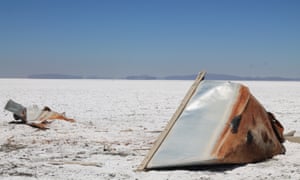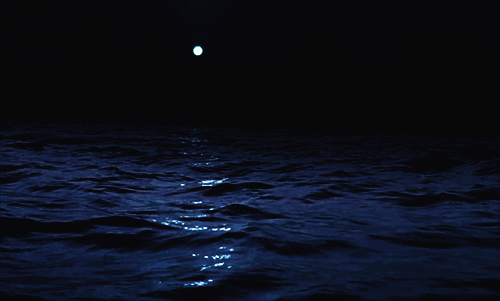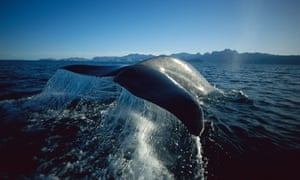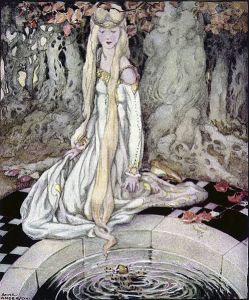via the Guardian by Laurence Blair in Oruro

A boat lies on its side on the salt flat that used to be Lake Poopó. Photograph: Laurence Blair
The remainder of an ancient sea at the heart of South America is fast becoming a memory: a white expanse of salt stretches for miles, with just a smear of red, brackish water at its southern edge.
Lake Poopó was once Bolivia’s second largest body of water, but when asked how to get to the lake today, locals correct a visitor.
“You mean the ex-lake; the salt flat,” says Arminda Choque, 23, as she waits outside a mobile dental clinic in Llapallapani, a community of crumbling adobe-and-thatch houses inhabited by the indigenous Urus-Muratos, who have lived off the lake’s abundant fish since time immemorial. “I want my children to leave and go to college. There’s no future for them here.”
Continue reading
==============================
via Interesting Literature
In this week’s Dispatches from The Secret Library, Dr Oliver Tearle offers a taste of the literary trivia on offer in his new book about literary Britain
Today [1 December 2017], this blog turns five years old. I’d like to thank everyone who’s supported it since its beginnings on 1 December 2012, whenever you happened to discover us. And as it’s our five-year anniversary, today seems like a nice moment to tell you a bit more about my new book, which is full of interesting literary trivia about Britain, and which I unveiled in a fact-filled blog post last month.
Continue reading
==============================
via The National Archives Blog by Jane Flood

Winston Churchill said in June 1940, ‘We shall fight on the beaches’… and so we did, but we also fought in the huts at Bletchley Park, one of Winston’s best-kept secrets. It was a den of Foreign Office recruits: men and women from all walks of life from chess players to mathematicians to debutantes. This is where the interception of messages and the breaking of the German Enigma codes took place and, with Alan Turing’s Colossus, it was a race against time.
Continue reading
==============================
via the OUP blog by Bart Streumer

road sign attention shield by geralt. Public domain via Pixabay.
Few philosophical theories are so hard to believe that no philosopher has ever defended them. But at least one theory is.Suppose that you think lying is wrong. According to a view that is known as the error theory, you then take lying to have a certain feature: you ascribe the property of being wrong to lying. But the error theory also says that this property does not exist. This entails that lying is not wrong. You may therefore conclude that lying is permissible. But according to the error theory, you then ascribe the property of being permissible to lying. And the theory says that this property does not exist either. The error theory therefore entails that lying is neither wrong nor permissible. And it entails similar claims about anything else you could do.
Lost me on the second sentence!
==============================
via New Statesman

JONI MITCHELL. PHOTO: GETTY
Buying an unheard LP was a risk in the pre-Spotify age. A dud left you with gambler’s despair. The reward for striking gold, however, was a who-dared-won joy rarely tasted by young musical explorers nowadays, I suspect. The day after my last A-level in 1987 I bought a cassette of Joni Mitchell’s Blue at a long-vanished record shop in Great Malvern chiefly because a girl I liked had mentioned it. Putting the cassette into my Walkman rip-off and hoping for the best, I set off home along the hills.
Good God. The next 35 minutes transformed my understanding of what songs could do and what singers could be.
Continue reading
==============================
via Boing Boing by David Pescovitz

For more than fifty years, scientists have known that the Earth hums. We can't hear the sound as it's at a frequency 10,000 times lower than our hearing threshold but new research suggests that it's coming from the ocean floor. Scientists from the Paris Institute of Global Physics analyzed data from earthquake sensors on the Indian Ocean floor and found the familiar and constant oscillations of between 2.9 and 4.5 millihertz.
Continue reading
==============================
via the Big Think blog by Philip Perry
Thank your lucky stars you’re alive. It’s truly a miracle of nature. This has nothing to do with spirituality or religion and everything to do with science. Life itself may not be the miracle. Although we haven’t found it elsewhere yet, our galaxy alone is so replete with Earth-like planets that, mathematically speaking, one of them must hold life, even if it’s just the microbial variety. Intelligent life may be another matter.
Continue reading
==============================
via the Guardian by Nicola Davis

The team discovered that blue whales more often rolled to the right for side-rolls deep underwater and to the left for barrel rolls in shallower water. Photograph: Tui De Roy/Minden Pictures RM/Getty Images/Minden Pictures RM
They are the largest animals on Earth, can live to around 90 years old and have a tongue that weighs as much as an elephant. Now scientists have revealed another insight into blue whales: how they roll.
A study has found that blue whales have a tendency to roll to one side or the other when lunging for prey, with the preference apparently down to the depth of the water and the type of roll they execute.
Continue reading
==============================
via Interesting Literature

Illustration of The Frog Prince by Anne Anderson (1874-1930), via Wikimedia Commons.
Beware of amphibians who can speak in verse. That seems to be the moral of ‘The Frog Prince’, though we’re not sure about that. ‘The Frog Prince’ is perhaps, of all the classic fairy tales, the one that most succinctly encapsulates the notion of ‘fairy tales’, ‘the fairy-tale ending’, and the spirit of transformation and ‘living happily ever after’ which pervades so many of the best-loved fairy tales. But what is the meaning of ‘The Frog Prince’, and what are the story’s origins?
Continue reading
==============================
via Boing Boing by Mark Frauenfelder

Behold the magic of compaction dynamics. Scientists from Mexico and Spain dumped 25,000 tiny dice (0.2 inches) into a large clear plastic cylinder and rotated the cylinder back and forth once a second. The dice arranged themselves into rows of concentric circles. See the paper and the videos here.
No comments:
Post a Comment